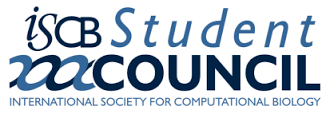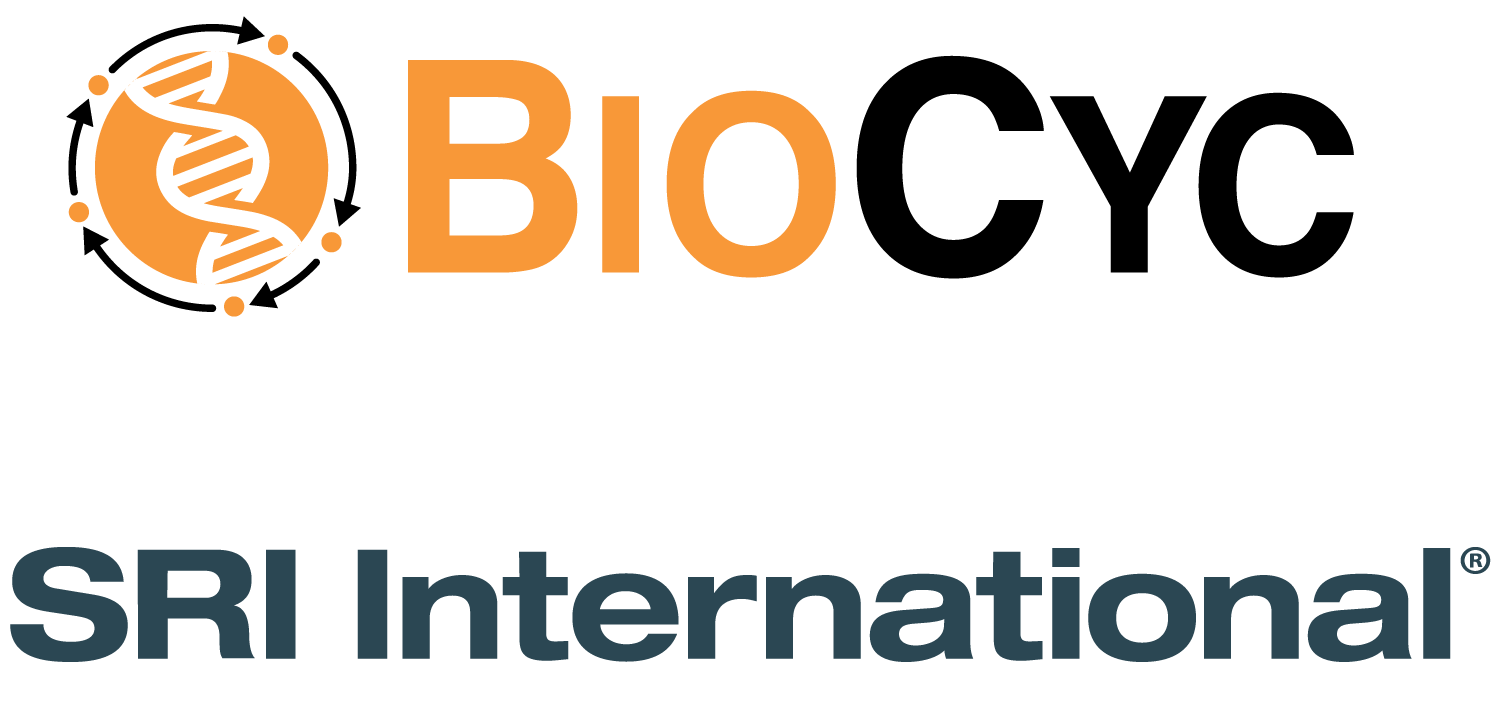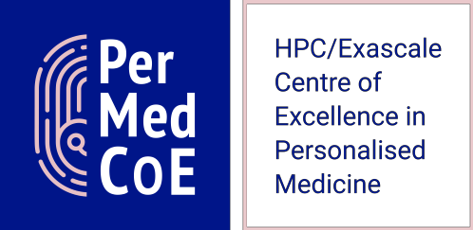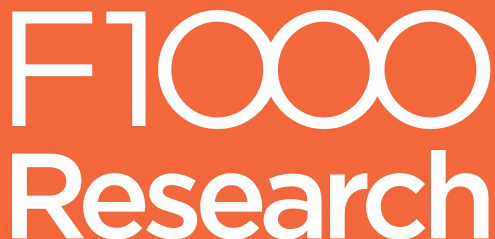Exhibitors and Recruiters
- International Society for Computational Biology
- ISCB Student Council
- BioCyc/SRI International
- EMBL's European Bioinformatics Institute (EMBL-EBI)
- PerMedCoE: HPC/Exascale Centre of Excellence in Personalised Medicine
- Nature Research
- Oxford University Press
- Harvard Medical School Department of Biomedical Informatics
- The German Network for Bioinformatics Infrastructure - de.NBI
- F1000 Research
- GOBLET
- UCLA Medical Informatics Home Area
- MemVerge
 www.iscb.org
www.iscb.org
The International Society for Computational Biology (ISCB) (www.iscb.org) was the first and continues to be the only society representing computational biology and bioinformatics worldwide. ISCB serves a global community of over 3,000 scientists dedicated to advancing the scientific understanding of living systems through computation by:
- convening the world’s experts and future leaders in top conferences
- partnering with publications that promote discovery and expand access to computational biology and bioinformatics
- delivering valuable information about training, education, employment, and relevant news
- providing an influential voice on government and scientific policies that are important to our members
ISCB has three official journals – OUP Bioinformatics, OUP Bioinformatics Advances and F1000Research ISCB Community Journal, and has affiliations in place with several other publications for the benefit of our members.
 www.iscbsc.org
www.iscbsc.org
ISCB Student Council is an international network of young researchers in the broader disciplines of Computational Biology. SC provides opportunities for networking, career enhancement, and skills development for the next generation of Computational Biology leaders. The SC Symposium is organized as a part of the annual ISMB conference with student presentations, keynotes, panel discussions, and a poster session. This year, the symposium edition is the 17th Student Council Symposium. The booth will include the highlights of our recent virtual conference (winners, new experiences, and results of the RSGs leadership meeting).
Visit our friendly SC representatives at the booth for more information.
 www.biocyc.org and www.pathwaytools.com
www.biocyc.org and www.pathwaytools.comPathway Tools is a comprehensive bioinformatics software package that spans enterprise genome data management, systems biology, and omics data analysis. The software has been licensed by more than 11,000 groups, and it powers the BioCyc.org website. It provides extensive search and visualization tools; computational inferences such as metabolic reconstruction; browsers for genomes, metabolic networks, and regulatory networks; transcriptomics and metabolomics data analysis, comparative analysis, and metabolic route search; sequence search and alignment.
BioCyc is a collection of 18,000 Pathway/Genome Databases (PGDBs) for model eukaryotes and for thousands of microbes, plus software tools for exploring them. BioCyc is an encyclopedic reference that contains curated data from 130,000 publications. BioCyc integrates genome data with a comprehensive body of additional data including metabolic reconstructions, regulatory networks, protein features, orthologs, gene essentiality, and atom mappings. BioCyc contains a vast set of bioinformatics tools including browsers for genomes, metabolic networks, and regulatory networks; transcriptomics and metabolomics data analysis, comparative analysis, and metabolic route search; sequence search and alignment.
 www.ebi.ac.uk/
www.ebi.ac.uk/EMBL’s European Bioinformatics Institute (EMBL-EBI) is a global leader in the storage, analysis and dissemination of large biological datasets.
We help scientists realise the potential of big data by enhancing their ability to exploit complex information to make discoveries that benefit humankind. We are at the forefront of computational biology research and we offer a wide range of bioinformatics training.
We are part of the European Molecular Biology Laboratory and are based just outside Cambridge, in the United Kingdom.
 permedcoe.eu/
permedcoe.eu/Personalised Medicine (PerMed) opens unexplored frontiers to treat diseases at the individual level combining clinical and omics information. However, the performances of the current simulation software are still insufficient to tackle medical problems such as tumour evolution or patient-specific treatments. The challenge is to develop a sustainable roadmap to scale-up the essential software for the cell-level simulation to the new European HPC/Exascale systems. Simulation of cellular mechanistic models are essential for the translation of omic data to medical relevant actions and these should be accessible to the end-users in the appropriate environment of the PerMed-specific big confidential data. The goal of PerMedCoE is to provide an efficient and sustainable entry point to the HPC/Exascale-upgraded methodology to translate omics analyses into actionable models of cellular functions of medical relevance. It will accomplish so by
- optimising four core applications for cell-level simulations to the new pre-exascale platforms;
- integrating PerMed into the new European HPC/Exascale ecosystem, by offering access to HPC/Exascale-adapted and optimised software;
- running a comprehensive set of PerMed use cases; &
- building the basis for the sustainability of the PerMedCoE by coordinating PerMed and HPC communities, and reaching out to industrial and academic end-users, with use cases, training, expertise, and best practices.
The PerMedCoE cell-level simulations will fill the gap between the molecular- and organ-level simulations from the Centres of Excellence CompBioMed and BioExcel, with which this proposal is aligned at different levels. It will connect methods developers with HPC, HTC and HPDA experts (at the Centres of Excellence POP and HiDALGO). Finally, the PerMedCoE will work with biomedical consortia (i.e. ELIXIR, LifeTime initiative) and pre-exascale infrastructures (BSC and CSC), including a substantial co-design effort.
 www.nature.com
www.nature.comNature Portfolio’s high-quality products and services across the life, physical, chemical and applied sciences are dedicated to serving the scientific community.
Our journals publish some of the world's most significant scientific discoveries. The portfolio includes Nature and many more research and reviews titles such as Nature Computational Science. Nature Portfolio also offers a range of researcher services. For information on the portfolio please visit nature.com and to discover more about our new title Nature Computational Science please visit the journal homepage or speak to our Editor attending the conference, Ananya Rastogi, via the booth appointment scheduler or This email address is being protected from spambots. You need JavaScript enabled to view it..
Oxford University Press publishes a range of computational biology journals, including Bioinformatics, Bioinformatics Advances, GigaScience, Nucleic Acids Research, NAR Genomics and Bioinformatics, Database, Briefings in Bioinformatics, Briefings in Functional Genomics, and more. Cailin Deery, the publisher for Bioinformatics is exhibiting on behalf of OUP during ISMB this year. Bioinformatics publishes the highest quality scientific papers and review articles with its main focus is on new developments in genome bioinformatics and computational biology. To say hello, ask a question, provide feedback or otherwise, please don’t hesitate to get in touch through the conference scheduling tool.
 dbmi.hms.harvard.edu
dbmi.hms.harvard.eduThe Harvard Medical School Department of Biomedical Informatics offers a variety of opportunities to increase your knowledge base and skill set in the application of quantitative principles to biomedical discovery. Come learn about our educational programs which include a Master’s, PhD, and Summer Institute and hear about our postdoctoral fellowships, faculty positions and other career opportunities.
Visit our booth to learn more about educational and career opportunities during the Research Exchange Forum (15:20 - 16:20 UTC) Monday 26 – Thursday 29.
For more information please visit: http://dbmi.hms.harvard.edu
 www.denbi.de/
www.denbi.de/The German Network for Bioinformatics Infrastructure (de.NBI) is a national, academic and non-profit infrastructure supported by the German Ministry of Education and Research (BMBF). The network consists of eight Service Centers which are specialized in different omics fields assuring excellent services and high level of expertise. With its wide range of bioinformatics know-how, the de.NBI network is aimed to deliver high standard bioinformatics services, comprehensive training, powerful compute capacities (de.NBI Cloud) as well as connections to industrial companies in Germany and Europe. The de.NBI tool portfolio comprises over 160 services ranging from databases and stand-alone tools to complete workflows for the processing and analysis of omics data. In the field of training, de.NBI offers tailor-made training courses, webinars, summer schools and online courses on experimental data analysis which enable researchers in the life sciences to transform their raw data into actual results. Training courses are aimed at application users in life sciences as well as bioinformaticians and developers. The de.NBI Cloud provides an excellent solution to enable integrative analyses and the efficient use of data as virtual machines and open stack in research and application. Researchers from the life sciences in Germany can use the de.NBI Cloud free of charge. With its wide range of bioinformatics expertise and renowned partner institutions, the de.NBI network guarantees the delivery of high standards bioinformatics services that contributes to the advancement of bioinformatics research in Germany and Europe.
 f1000research.com
f1000research.comF1000Research enables scientists and scholars to publish their research rapidly, openly, and transparently via an author-centric platform. We publish research across all academic disciplines and in multiple formats, including original articles, data notes, software tool articles and method articles. F1000Research operates a unique post-publication open peer review process, enabling authors to engage with their reviewers transparently, whilst also making the research available to a global audience as quickly as possible.
 www.mygoblet.org
www.mygoblet.orgGOBLET is an international organisation with the mission to cultivate a global community of bioinformatics trainers who support learning, education and training. GOBLET’s mission was defined under the vision that there is a clear need to harmonise bioinformatics training activities and to unite, inspire, and equip bioinformatics trainers worldwide. Towards this, GOBLET collaborates with national and international bioinformatics organisations. Relevant activities include the initiation of a series of standards and guidelines, work on the definition of competencies, promotion of best practices, and providing high-quality resources for learning, education and training in bioinformatics and computational biology, on a global scale.
 biomedicalinformatics.ucla.edu/
biomedicalinformatics.ucla.edu/The Medical Informatics Home Area is UCLA’s nexus for interdisciplinary training of the next generation of scientists involved in biomedical informatics and data science. UCLA provides a unique environment to bring together cutting-edge expertise and experience in a dynamic environment for graduate students engaged at the intersection of engineering, medicine, public health, and other related fields — and focusing on the goal of transforming modern healthcare through contemporary data-driven methods and tools.
Visit our booth to learn more!
 memverge.com/
memverge.com/As the world's enterprises accelerate their digital transformations, they discover that next-generation applications must deal with data that are bigger and faster at the same time, outstripping the capabilities of today's infrastructure. MemVerge's mission is to deliver a new architecture, called Big Memory Computing, that converges memory and storage, thereby removing the storage I/O bottleneck once and for all. MemVerge's Memory Machine™ Software virtualizes heterogeneous memory hardware into a software-defined memory service that has both high capacity and high performance. MemVerge ZeroIO™ In-Memory Snapshot technology captures the state of running applications, and can be used for application roll-back, cloning and high availability. The results are new levels of productivity, performance, availability, and mobility for today's data-centric applications, both on-premises and in the cloud.






